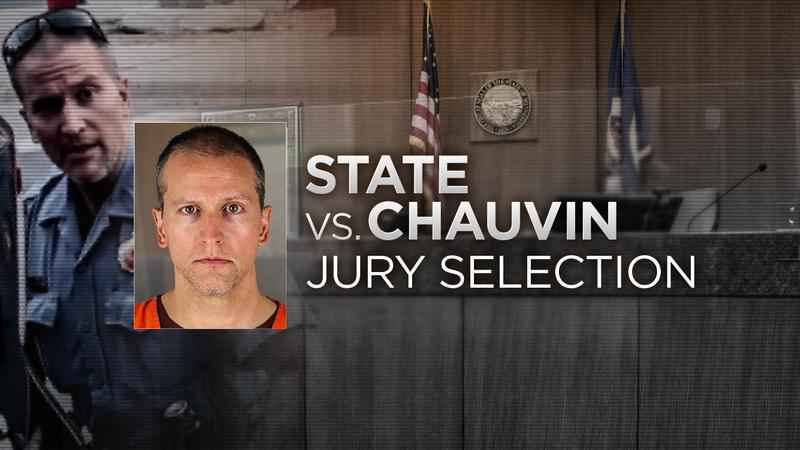State vs. Chauvin Day Two: Jury selection to continue, 3rd-degree murder charge unresolved
[anvplayer video=”5012260″ station=”998122″]
The trial of a former Minneapolis police officer charged in George Floyd’s death is forging ahead with jury selection, even though a looming appellate ruling could halt the case and delay it for weeks or even months as the state tries to add a third-degree murder count.
Prosecutors are asking the Court of Appeals to put Derek Chauvin’s trial on hold until the issue of adding the third-degree murder count is resolved. The appeals court did not immediately rule on that request, and Judge Peter Cahill said Monday that he intends to keep the trial on track until he’s told to stop.
"Unless the Court of Appeals tells me otherwise, we’re going to keep moving," he said. Jury selection is expected to begin Tuesday, a day later than scheduled.
Chauvin is charged with second-degree murder and manslaughter in Floyd’s death. The Court of Appeals last week ordered Cahill to consider reinstating a third-degree murder charge that he had dismissed. Chauvin’s attorney, Eric Nelson, said Monday he would ask the state Supreme Court to review the issue.
"We want to try this case, but we want to try it right and we only have the ability to try it once," Nelson said. "It is not our intent to cause delay by filing a PFR with the Minnesota Supreme Court, however, I feel I have an ethical obligation to my client and to other criminal defendants to do so."

Judge Peter Cahill, who is presiding, has estimated jury selection will take three weeks, with opening statements to follow.[KSTP-TV]
Monday, prosecutors and defense attorneys agreed to dismiss 16 of the first 50 jurors they reviewed "for cause," which Cahill approved. "For cause" dismissals can be for a host of reasons, including when someone expresses views that indicate they can’t be impartial.
Jury selection could take at least three weeks and will end when 14 jurors are picked — 12 who will deliberate and two alternates. The potential jurors — who must be at least 18, U.S. citizens and residents of Hennepin County — were sent questionnaires to determine how much they have heard about the case and whether they’ve formed any opinions. Besides biographical and demographic information, jurors were asked about prior contacts with police, whether they have protested against police brutality and whether they believe the justice system is fair.
Some of the questions get specific, such as how often a potential juror has watched the bystander video of Floyd’s arrest, or whether they carried a sign at a protest and what that sign said.
Jurors will be questioned individually. The judge, defense attorney and prosecutors can all ask questions. In addition to both sides being able to argue for an unlimited number of "for cause" dismissals, the defense can object to up to 15 potential jurors without giving a reason; prosecutors can block up to nine without providing a reason. Either side can object to these peremptory challenges if they believe the sole reason for disqualifying a juror is race or gender.
A hearing at 8 a.m. Tuesday could address the appeals court ruling.
The Associated Press contributed to this report.
5 EYEWITNESS NEWS will have team coverage of Derek Chauvin’s trial on-air and online. Here’s how to follow the daily developments:
Watch live video coverage of the trial each day on KSTP.com or the KSTP YouTube page.
KSTP’s full coverage of the trial, and all events leading up to it, can be found at KSTP.com.
You can also follow the latest developments on our KSTP-TV Facebook page and KSTP Twitter feed.